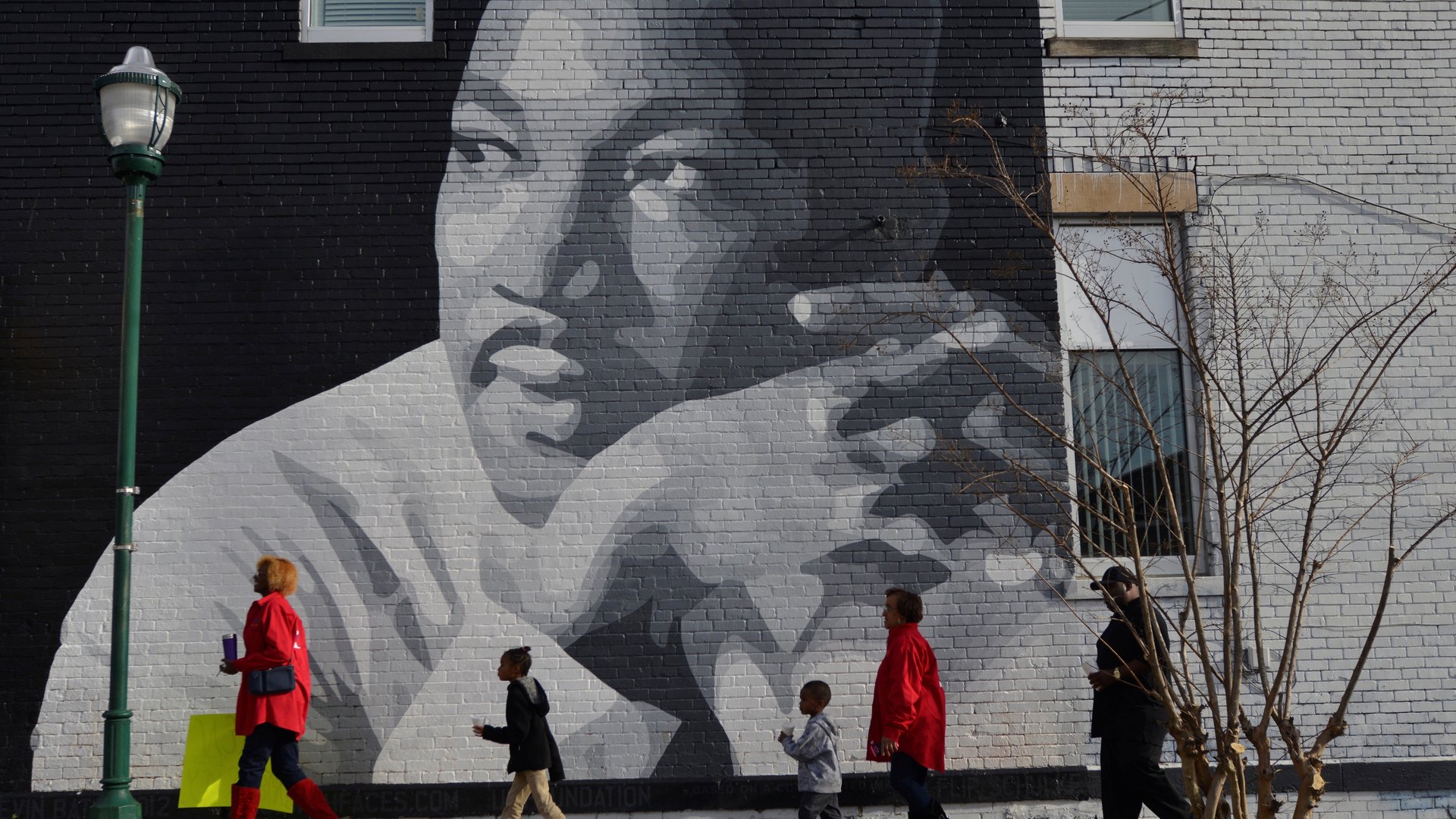MLK Day 2018: In Dallas, Alton Sterling’s family meets police widows in spirit of peace
Fifty years after the assassination of Dr. Martin Luther King, Jr. in Tennessee, there is still a deep racial divide in the US. But tonight (Jan. 15), in Dallas, people of all races, walks of life, and political leanings will gather for a never-before-attempted reconciliation event that honors King’s legacy, called the “Course Correction Conversation.”


Fifty years after the assassination of Dr. Martin Luther King, Jr. in Tennessee, there is still a deep racial divide in the US. But tonight (Jan. 15), in Dallas, people of all races, walks of life, and political leanings will gather for a never-before-attempted reconciliation event that honors King’s legacy, called the “Course Correction Conversation.”
The conversation will center around the victims of racial violence. Alton Sterling was killed by police in Louisiana in July 2016. His arrest and violent death after allegedly pulling a gun on an officer were captured in a video that contradicted officers’ accounts, sparking violence in Baton Rouge and beyond. In July 2016, five Dallas policemen were killed in retaliatory violence spurred by the lack of response to Sterling’s death. A year later, the Department of Justice opted not to prosecute the officers who shot Sterling.
Tonight’s conversation will include the mother of Alton Sterling’s children, Andricka Williams, meeting for the first time with the widows of two slain Baton Rouge police officers, Tonja Garafola, widow of Brad Garafola, and Trenisha Jackson, widow of Montrell Jackson. Also slated to attend are Dr. Bernice King, King’s daughter, Texas Republican Senator Ted Cruz, Democratic Congresswoman Eddie Bernice Johnson, and the public. The idea is for attendees to show the power of civil discourse—to demonstrate that pain can be transformed into resistance to violence and that peace is possible.
“This isn’t partisan, it’s people,” explains event organizer Dallas Bishop Omar Jahwar, founder of Urban Specialists, a nonprofit organization which trains individuals to work on initiatives that change minds and lives in underprivileged communities. Jahwar was a prison gang counselor and has convinced tough characters that peace is preferable to war, so he is hopeful that the conversation in Dallas will be fruitful.
“King’s main principle was civility at all costs,” Jahwar told Quartz. “This is a hard moment in US history. But as King said, ‘we can live together as brothers or die alone as fools.’ So this is an opportunity for us to heal together and give ourselves a chance to live.”
Jahwar believes, as King did, that the road to peace begins with dialogue. To him, believing in peace isn’t naive. He’s seen people and communities change, starting with a conversation. Exchange creates and reminds people of their shared values, he says.
That said, getting people to just take that first step, to sit down together and talk, isn’t easy. Quite reasonably, victims of violence are wary of everything—this society, sharing with strangers, and even of abandoning the sense of “us versus them” confirmed by their experience but which Jahwar says perpetuates alienation and racial violence. He and his team spoke to participants many times before the conversation could be confirmed.
To convince them to come, the bishop shared his theory that blame and anger are destructive to victims, even when justifiable, and inspired them to follow King’s example by setting an example themselves, publicly transforming their pain into a common struggle for peace. Once he convinced victims of violence that they had much more in common than they imagined, and that they could use their suffering to teach others, all agreed.
Jahwar is confident that the night will be “touching and emotional” and prove cathartic for everyone—in Dallas and beyond— explaining, “I told them we are all fighting together for the same thing, in the spirit of Martin Luther King, and that together we can make a meaningful change.”
Correction: An earlier version of this story incorrectly stated that Williams will meet widows of police officers slain in Dallas. The officers were killed in Baton Rouge in violence after Sterling’s death.